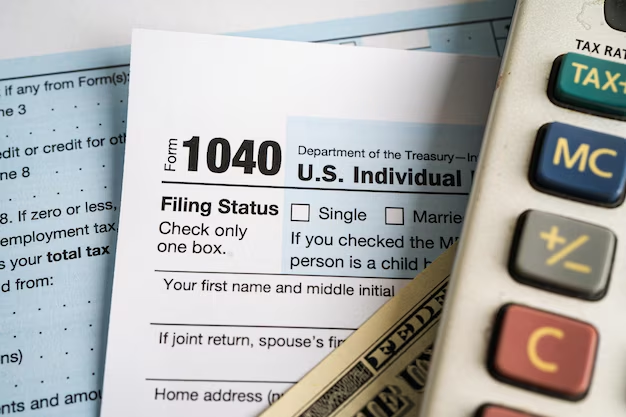Unpacking Ohio's State Income Tax: What You Need to Know
Ohio is famous for its diverse landscape, vibrant cities, and rich history, but if you're considering a move or already call the Buckeye State home, you might ask, "Does Ohio have state income tax?" The answer is yes, Ohio does have a state income tax system in place. Let's explore the intricacies of Ohio's state income tax, its implications, and related aspects that might affect your financial planning.
Ohio's State Income Tax: An Overview
Ohio's state income tax system is a progressive tax, meaning that the tax rate increases as your income grows. This approach aims to balance the tax burden according to the ability to pay.
Ohio Income Tax Rates and Brackets
Ohio’s income tax comprises multiple brackets, with rates varying based on income levels. Here’s a look at the current range:
- Low-end Bracket: For lower-income individuals, the rate starts low, ensuring that those earning less are not overly burdened.
- High-end Bracket: At the top end, those with higher incomes face a steeper rate, contributing more to state revenues.
It's important to note that these brackets and rates can change, so keeping up with the latest from the Ohio Department of Taxation is crucial for accurate tax planning.
Exemptions and Deductions
Ohio offers personal exemptions and deductions that can lighten your tax load:
- Personal and Dependent Exemptions: These reduce your taxable income based on the number of dependents.
- Retirement Income: Certain retirement income sources may be exempt or partially exempt from state taxation.
- Medical Savings Accounts: Contributions to medical savings accounts may be tax-deductible.
Filing Your Ohio State Income Taxes
Knowing how to file your Ohio taxes correctly is essential to avoid penalties and ensure you're compliant. Here's a breakdown of the process:
Who Must File?
Typically, if you live in Ohio or earn income in Ohio, you’re required to file a state income tax return. This includes:
- Residents: Anyone residing in Ohio for the entire tax year.
- Part-Year Residents: Those who lived in Ohio for part of the year must file and pay taxes on income earned while residing in the state.
- Nonresidents: Those who earn income from Ohio sources may also be required to file.
Filing Methods
Ohio offers several filing options to accommodate different preferences:
- Electronic Filing (E-File): This is the fastest method, allowing for quick processing and timely refunds.
- Paper Filing: Traditional paper forms are still available but might result in slower processing.
Important Deadlines
- Filing Deadline: Typically, Ohio state taxes are due on April 15. If this date falls on a weekend or holiday, the deadline may shift to the next business day.
- Extensions: An extension to file is available, but you must ensure taxes owed are paid by the deadline to avoid interest and penalties.
Key Considerations for Ohio Taxpayers
Understanding the broader tax landscape in Ohio helps in effective financial planning. Here are some pivotal factors to consider:
Local Taxes
In addition to state income tax, many municipalities in Ohio impose local taxes. These can vary significantly:
- Municipal Income Taxes: These taxes are levied by cities or towns, and the rates can differ widely. It's crucial to factor these into your overall tax equation.
Tax Credits
Ohio provides numerous tax credits that can substantially reduce your tax liability:
- Earned Income Credit: This is available for qualified low to moderate-income earners.
- Adoption Credit: Assisting families with adoption expenses, helping to alleviate the financial burden.
- Education Credits: Available for eligible education-related expenses.
Impact of Federal Tax Changes
Federal tax laws can influence state taxes significantly. Keeping abreast of federal tax policies can help anticipate changes to your Ohio state tax situation.
Ohio Taxpayer Rights and Resources
Ohio taxpayers have rights and access to several resources to assist with tax-related issues:
Taxpayer Bill of Rights
The Ohio Taxpayer Bill of Rights ensures that you have clear expectations and protections regarding taxes. Highlights include:
- Timely and Courteous Service: Expect professional and prompt communication from the Ohio Department of Taxation.
- Appeals Process: Access to a clear process for disagreements about tax assessments.
Resources
Several resources are available for Ohio taxpayers to facilitate smooth tax filing:
- Ohio Department of Taxation Website: A comprehensive source for forms, guides, and updates.
- Taxpayer Assistance: Services are available to assist with questions and challenges related to Ohio state taxes.
Practical Tips for Ohio Tax Filers
To smooth out your tax filing experience in Ohio, consider the following practical tips:
- Stay Informed: Regularly check for updates on tax regulations that affect Ohio residents.
- Organize Documents: Keep your financial documentation organized, as this can streamline the filing process.
- Consider Professional Help: If your tax situation is complex, professional tax assistance may help ensure accuracy and compliance.
Key Takeaways 📌
- Ohio imposes a state income tax with progressive rates.
- Several exemptions and deductions may reduce your taxable income.
- Be aware of local taxes, such as municipal income taxes.
- Utilize tax credits to lower your liability.
- Resources and assistance are available for a seamless filing process.
Understanding Ohio's taxation system is crucial whether you're a current resident planning your finances or a future resident. By staying informed and proactive, you can navigate Ohio's state income tax with confidence, making the most of deductions, credits, and available resources.

Related Topics
- Can Business Deductions Reduce Your State Personal Income Tax
- Does Alaska Have State Income Tax
- Does Arkansas Have State Income Tax
- Does California Have a State Income Tax
- Does California Have State Income Tax
- Does Colorado Have a State Income Tax
- Does Connecticut Have a State Income Tax
- Does Ct Have State Income Tax
- Does Delaware Have State Income Tax
- Does Fl Have State Income Tax
